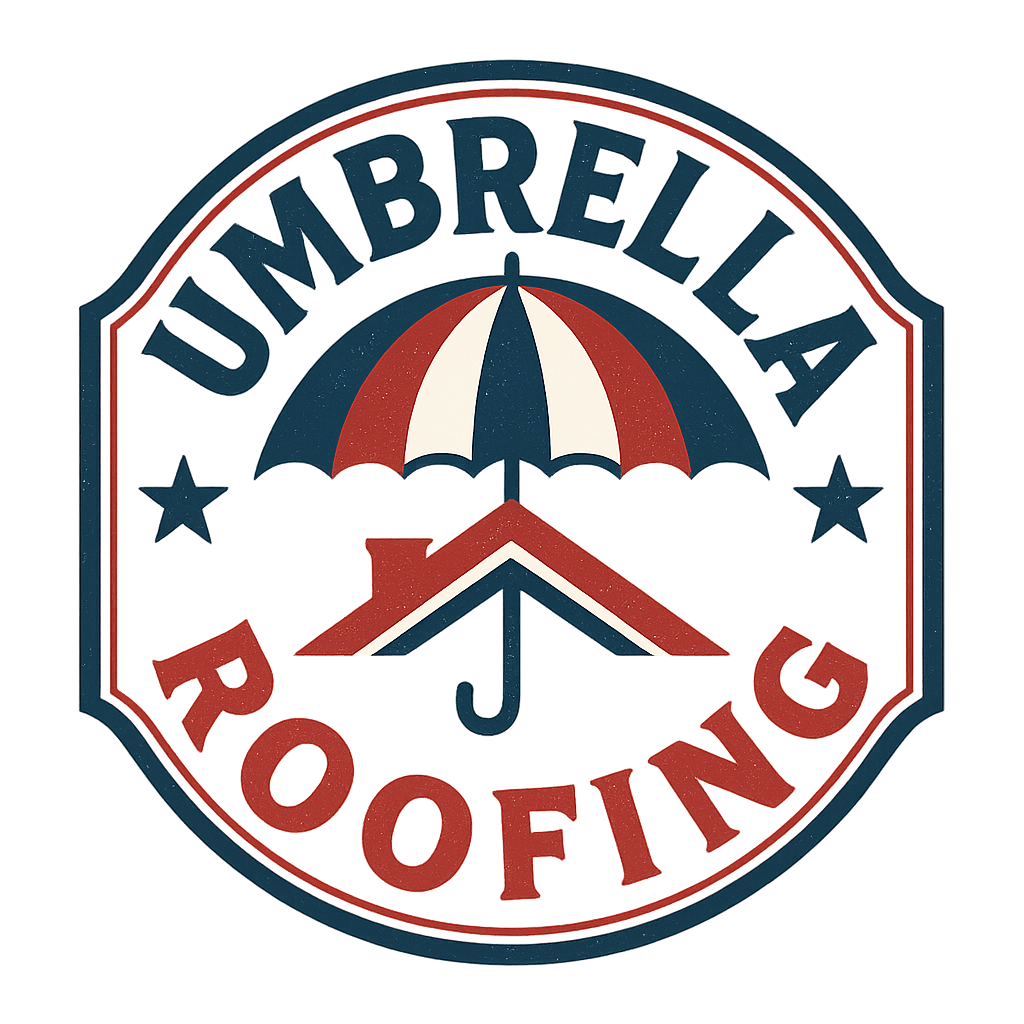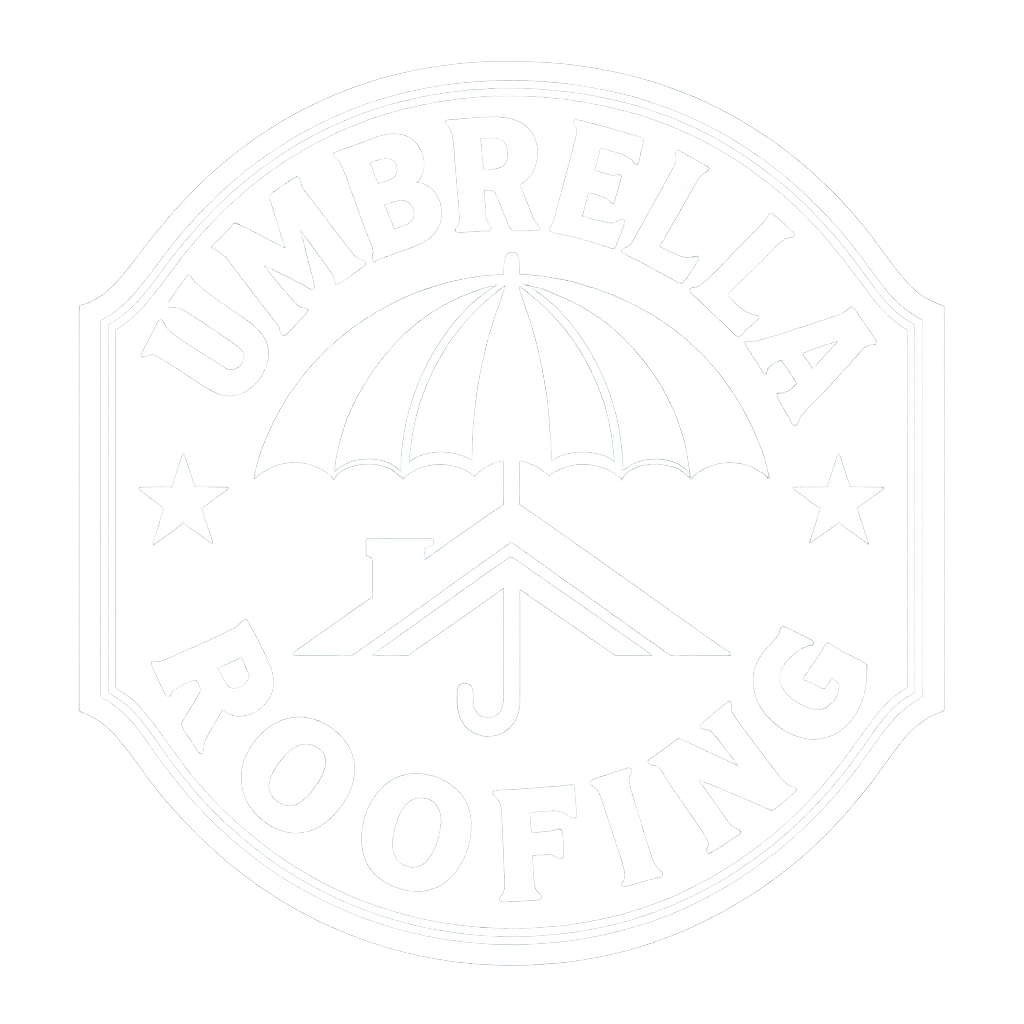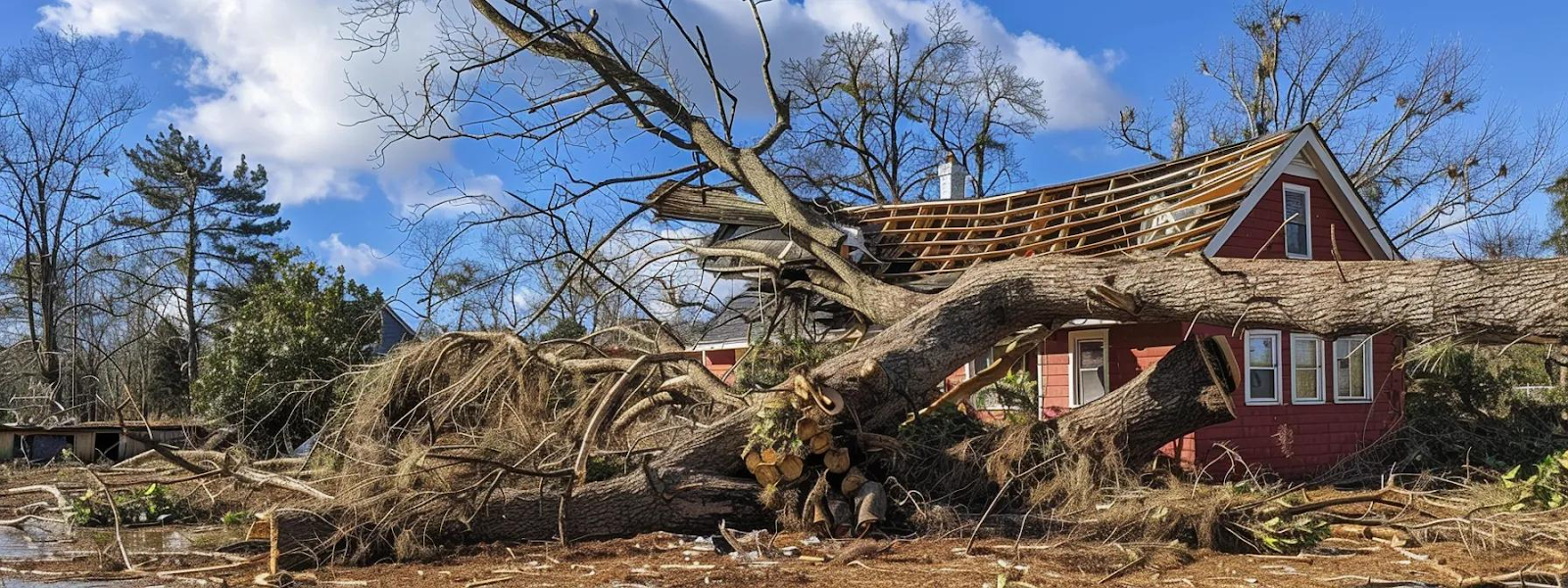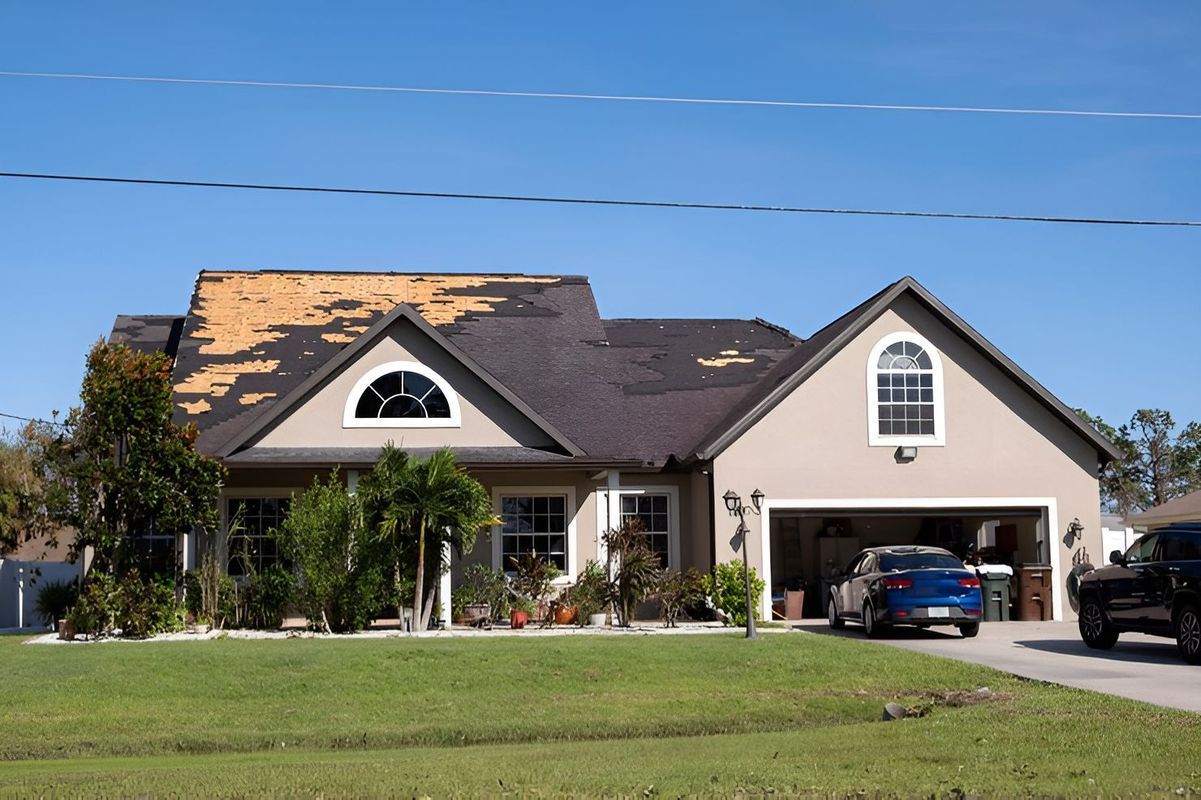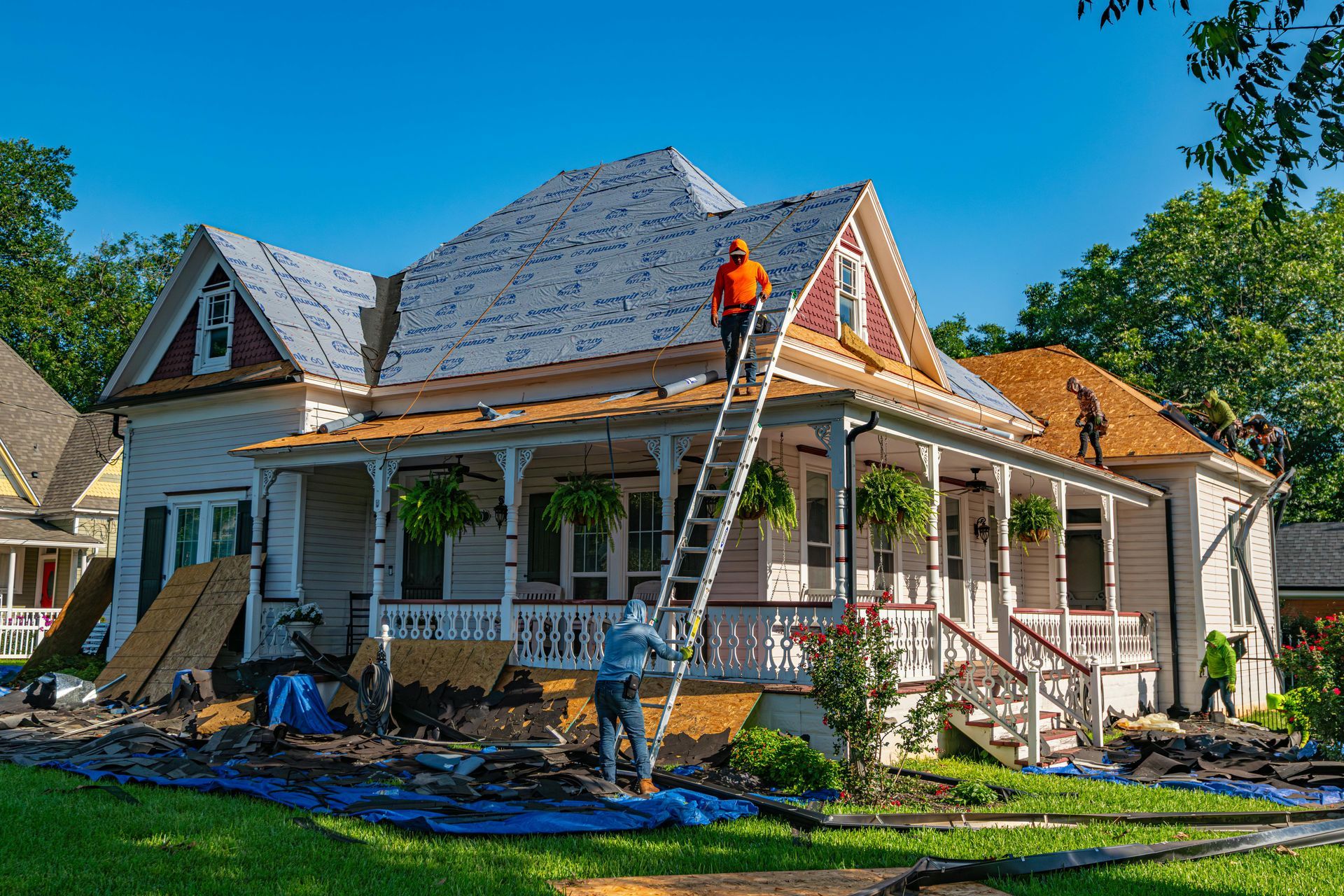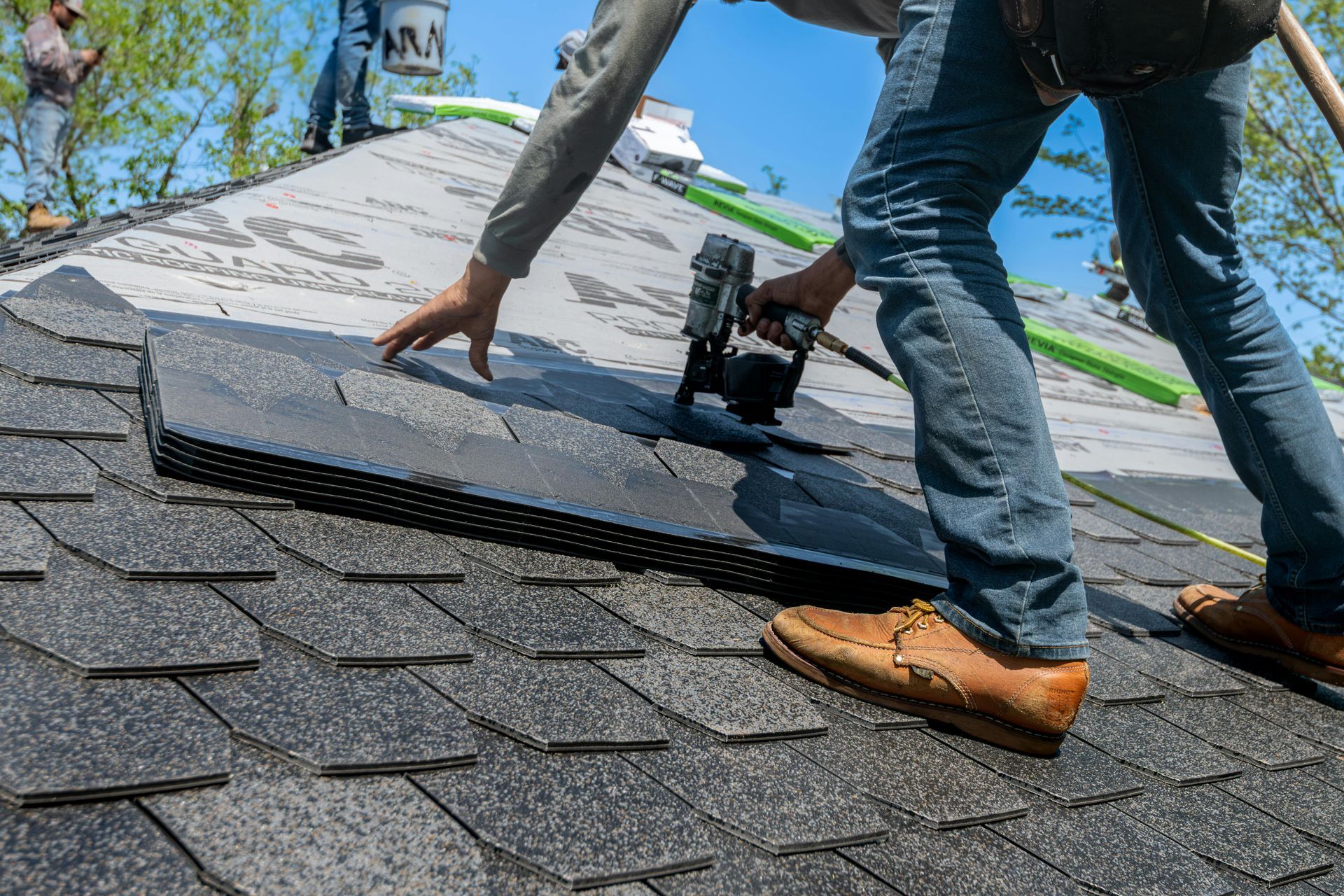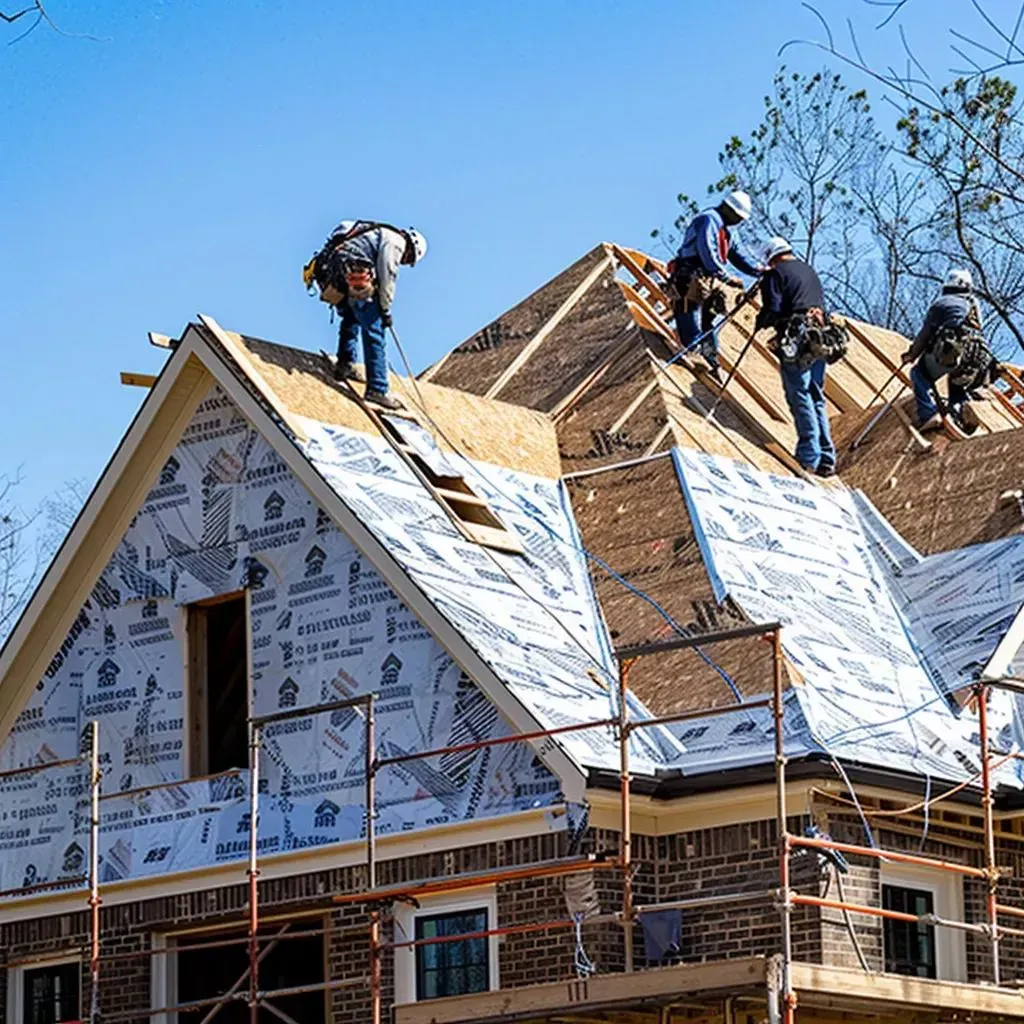Roofing Company Secrets Revealed and What Your Local Pros Really Do
You probably think a
roofing company just nails shingles to wood and then leaves.
That’s only part of the job.
A roofing company takes on much more than just fixing leaks or laying shingles. This post will show you what actually goes on, so you know what to ask, expect, and look for.
Why Your Roof Matters More Than You Think
- A leaky roof can let mold start in as little as two days.
- Broken flashing gives squirrels a doorway large enough for a family.
- Missing shingles can void a manufacturer's warranty long before the label’s “30-year” promise.
According to the Occupational Safety and Health Administration, falls from roofs still rank among the top causes of construction injuries in the United States. That statistic tells a bigger story: roofing is skilled, risky labor that protects the people below.
The Everyday Jobs a Crew Handles Before Noon
- Pre-Job Safety Talk: The foreman reviews harness rules and ladder angles using OSHA fall-protection standards.
- Tear-Off: Old shingles, nails, felt, and flashings come down. Crews sort recyclables from landfill waste to keep disposal costs low.
- Deck Check: Carpenters tap every sheet of plywood. Soft spots get replaced on the spot, not “next time.”
- Dry-In Layer: Synthetic underlayment rolls out. This water-resistant sheet is what guards your attic if storm clouds arrive mid-job.
- Starter Shingles & Edges: Edges set the straight line that guides every row above. Crews run chalk lines because eyeballing leads to crooked ridges.
By lunch, the rooftop looks bare but watertight.
A single morning shows how many moving parts a
roofing company in Sugar Hill juggles at once.
Behind the Scenes Planning Nobody Sees From the Street
Homeowners often picture hammer swings, yet most of the work starts a week earlier on a desk:
- Permit Pulling—Cities like Sugar Hill require a permit for replacement. Roofers file drawings and pay fees so you avoid code violations.
- Material Logistics—Suppliers stage bundles close to the job date. Heavy rain forecasts require rescheduling to keep felt dry.
- Neighbor Notices—Crews post yard signs and send polite heads-up letters so cars get parked away from falling debris.
These details happen off-roof, but they protect your lawn, schedule, and budget. This separates hobbyists from professional services.
Step-By-Step Guide for Hiring Without Headaches
| Step | What to Ask | Why it Matters |
|---|---|---|
| 1 | “May I see your Georgia Contractor License?” | Verifies the legal right to work on structures. |
| 2 | “Do you carry workers’ comp and liability insurance?” | Shields you from liability if someone trips on your driveway, for example. |
| 3 | “Will you install to the shingle maker’s manual?” | Keeps your warranty valid. |
| 4 | “How will you protect my gutters and landscaping?” | Shows respect for property. |
| 5 | “Can I have three recent local references?” | Past performance predicts future results. |
Print this list, tape it to the fridge, and run through it on every quote call.
Tools, Tech, and Safety Rules That Keep Crews Working Smart
- Harness Systems—Roofers clip lanyards to anchors screwed into rafters. OSHA 1926.502 spells out lanyard strength and anchor placement.
- Thermal Cameras—Infrared scans spot wet insulation without ripping open drywall.
- Magnetic Sweepers—Rolling magnets collect stray nails in grass so kids’ bare feet stay safe.
- Digital Pitch Meters—Laser tools read roof slope in seconds, replacing risky tape-measure walks.
Important: smart tools lower job time and raise safety at the same time.
Questions Homeowners Forget to Ask (But Pros Wish They Would)
- “Where will the dumpster sit?”
Parking pads avoid rutting wet lawns. - “Can I keep leftover shingles?”
Extra bundles help future minor repairs match color. - “How do you cover the roof if a storm rolls in at night?”
Crews should have woven tarps or synthetic wrap ready within arm’s reach. - “Who inspects the attic after work?”
A flashlight check spots nails that missed the decking before they drip. - “Will your office register my manufacturer warranty?”
Some brands require online forms within 30 days.
Use these five checks and you cut the chances of hidden surprises later.
Conclusion
So, what does a roofing company actually do?
They don’t just install roofs. They protect homes. They solve problems. They plan for what’s next.
Roofing companies like Umbrella Roofing, give you a safe, dry, and comfortable home.
When you choose us, you get:
- Skilled workmanship backed by real warranties
- Clear communication with zero jargon
- Honest options for every budget and every roof type
If you're ready to talk to a real roofing company, not just a shingle slinger, then
see what we offer here, and schedule an inspection today.
